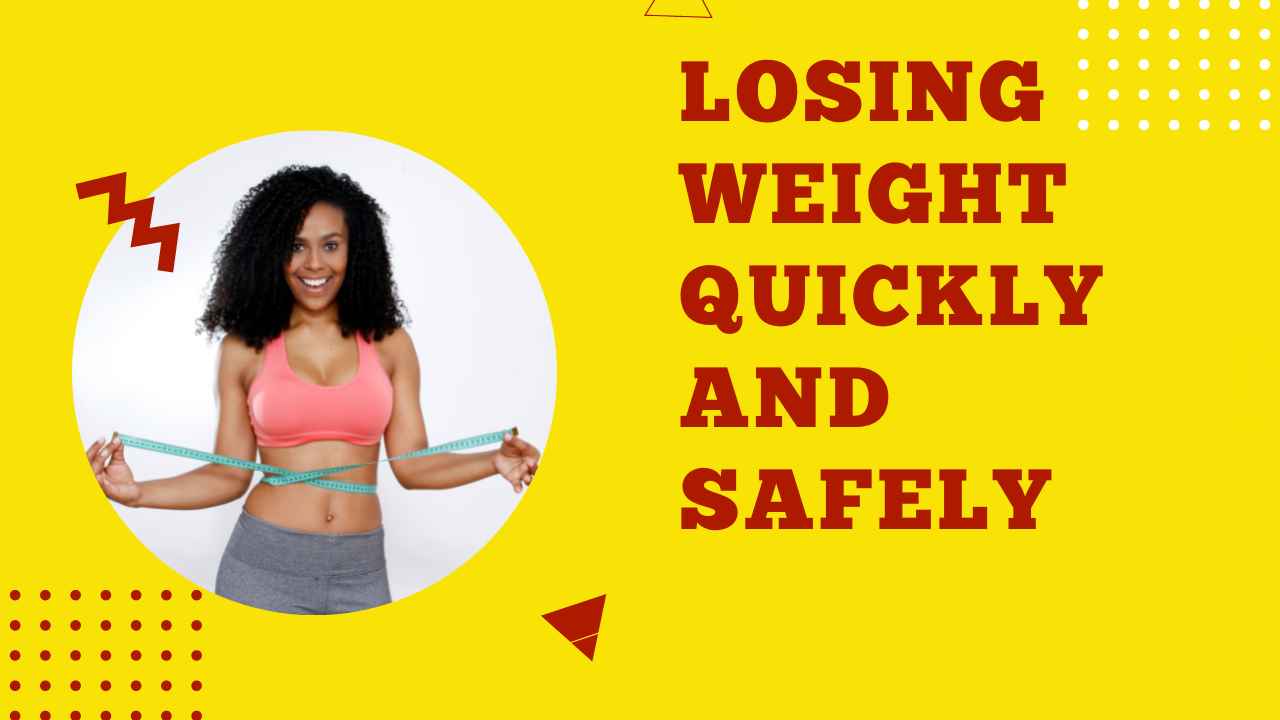Many meal replacement plans, diets, and supplements claim to help you lose weight, but there is often little scientific evidence to back up the claims. Such supplements are not subject to the same regulations as prescription and over-the-counter medications that must be approved by the U.S. Food and Drug Administration (FDA) before hitting the market. Below are some tips to lose weight quickly and safely.
Table of Contents
Track your diet
If you want to lose weight, you need to keep track of what you eat and drink on a daily basis. The easiest way to do this is to use an online food tracker. Logging your food intake can be an eye-opening experience, helping you learn to eat nourishing and filling foods without consuming too many calories.
If your diet plan is not achieving the results you want, try FDA-approved Wegovy for chronic weight management. Drip Hydration, Freviya, and CWLC offer Wegovy weight loss in Chicago. Wegovy is an injectable prescription medication for adults who are obese or overweight and also have weight-related medical problems. It helps regulate your appetite, helping you stick to a diet and exercise plan that will help you shed pounds.

Exercise regularly
It is beneficial to exercise for at least 30 minutes every day. Exercise can help you to lose weight quickly because it burns calories and prevents your metabolism from slowing down. Strength-training and cardio workouts such as walking, running, swimming or cycling can help you lose weight as well as improve your overall health.
Cut back on sugar and refined carbohydrates
A diet high in added sugar is linked with obesity. It’s important to try and replace snacks high in sugar with more nutritious options such as nuts, fruit, and seeds. Fruit juice can contain a significant amount of sugar, so you should opt for smoothies containing water or milk. Herbal teas are a healthier alternative to sodas that notoriously contain high amounts of sugar.
Refined carbohydrates like white rice, bread and pasta are processed, removing the fiber and other nutrients. This means they digest quickly and are turned into glucose which enters the bloodstream and causes the release of insulin. Insulin promotes fat storage in the adipose tissue and contributes to weight gain. Replace white versions of rice, pasta, and bread with whole-grain versions. Reducing refined carbohydrates may help reduce your appetite and lower your insulin levels, helping you to burn fat.
Eat plenty of fiber
Plant-based carbohydrates contain fiber that is not digested as easily, meaning it is not converted to glucose. Including more fiber in the diet can help you feel full for longer, curbing appetite.
Foods rich in fiber include:
- Whole grain cereals, pasta, and bread
- Oats, rye, and barley
- Fruit and vegetables
- Pulses, beans, and peas
- Seeds and nuts
Get adequate sleep at night
Many studies have shown insufficient sleep is linked with an increased incidence of obesity. The reason for this appears to be that a lack of sleep or poor sleep quality slows down metabolism- the process of converting calories to energy. Insufficient sleep or poor sleep can also increase the production of cortisol and insulin, which promotes fat storage. Not sleeping enough can also negatively affect the regulation of the appetite-controlling hormones leptin and ghrelin.
A minimum of seven to eight hours of sleep a night is necessary to prevent fluctuating hormones that can increase your cravings for unhealthy food.
Manage your stress levels
Constantly being stressed means that the hormone cortisol stays in your bloodstream, and this can increase your appetite. Cortisol encourages the body to replace its nutritional stores with carbohydrates, which are stored as fat if unused.
Some methods for managing stress include spending time outdoors, meditating, doing yoga, or using breathing and relaxation techniques. If you are having difficulty managing chronic stress, you may want to consider seeking counseling. Learning healthier coping mechanisms for overcoming stressful situations can help reduce the frequency of a physical “fight or flight” response, which triggers cortisol production.
Eat whole foods
Eating whole foods (foods in their natural state or that are minimally processed) helps to fill you up and stabilize your energy levels. Apples, bananas, fish, and eggs are examples of whole foods that can easily be incorporated into your diet. Foods high in protein, like eggs, can help you feel full and lessen the likelihood of overeating.
Conclusion
When it comes to weight loss, it is important to use proven methods with scientific evidence to back them up. Eating healthy, nutritious whole foods, exercising regularly, and managing your stress are just some of the ways backed by science to lose weight and maintain your weight loss. If you are having difficulty achieving your health goals, you should consider consulting a healthcare professional, who can create a custom diet and exercise plan to help you feel your best.
I am Dr. Yenny Angela, a medical graduate from Hannover Medical School. I have expertise in emergency medicine and care for patients with multiple injuries. Also, I am a researcher always on the lookout for new scientific findings. I also have a publication on Researchgate.com.
